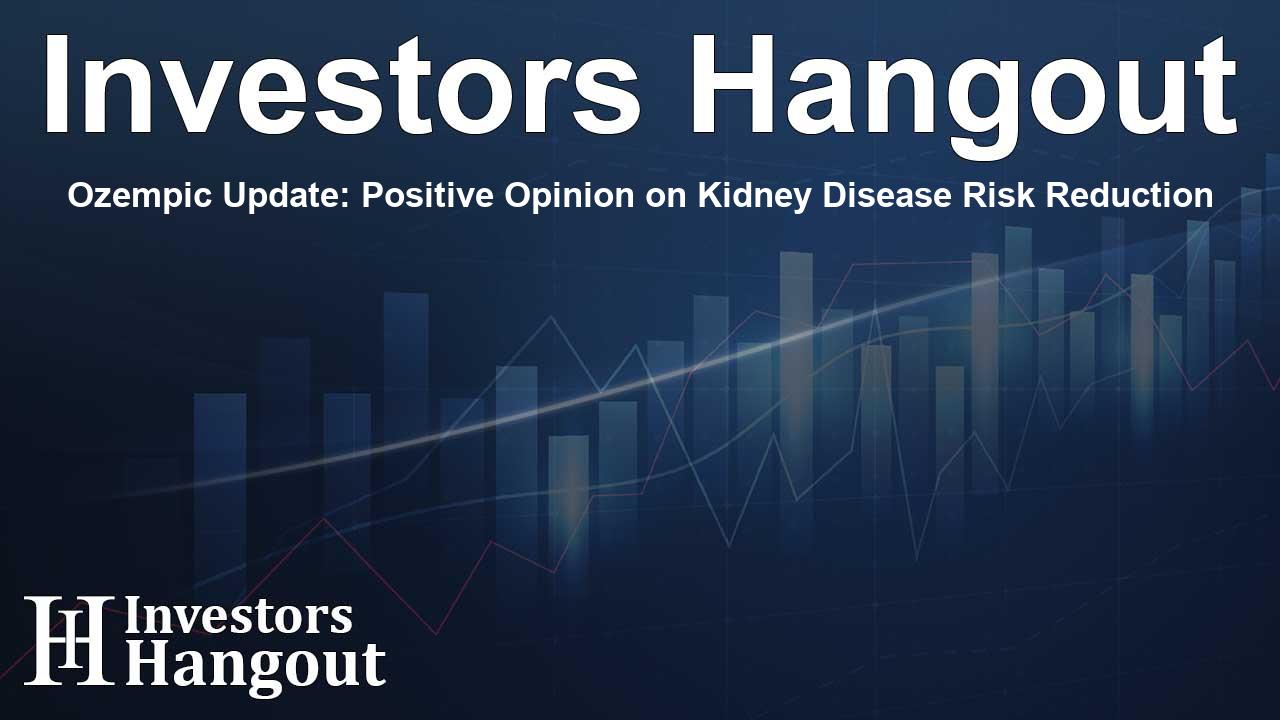Ozempic Update: Positive Opinion on Kidney Disease Risk Reduction

Significant Developments in Ozempic's Label Update
Recently, Novo Nordisk announced a breakthrough regarding its medication, Ozempic, following a positive opinion from the European Medicines Agency’s (EMA) Committee for Medicinal Products for Human Use (CHMP). This recommendation marks a pivotal moment as it seeks to update the Ozempic label to incorporate findings from the FLOW kidney outcomes trial. The FLOW trial was designed to evaluate the impact of Ozempic on chronic kidney disease (CKD) and its related complications.
Understanding the FLOW Trial and Its Outcomes
Overview of the FLOW Trial
The FLOW trial was both randomised and double-blinded, featuring a parallel design to compare 1.0 mg of injectable semaglutide against a placebo. This rigorous trial was conducted at approximately 400 sites across 28 countries, involving a total of 3,533 participants suffering from type 2 diabetes and CKD. The primary focus was on the ability of semaglutide to slow the progression of kidney disease and lower the risk of mortality associated with kidney and cardiovascular issues.
Key Findings from the Research
Results from the FLOW trial revealed that semaglutide significantly reduced the risk of kidney disease progression by 24%, alongside delivering substantial benefits in terms of cardiovascular and kidney death outcomes compared to placebo. Notably, it also showed an 18% reduction in major cardiovascular events and a 20% reduction in all-cause mortality. Such findings underline the medication's dual benefit for patients with type 2 diabetes who are also battling CKD.
The Importance of This Update for Kidney Disease Patients
This positive opinion from the EMA is pivotal for individuals struggling with diabetes-related kidney issues. According to health reports, around 40% of people with type 2 diabetes face the possibility of developing chronic kidney disease. The emerging data supports the need for effective treatments aimed at slowing the progression of this condition, providing renewed hope for countless patients.
Novo Nordisk's Future Directions
Plans for US Market Expansion
Novo Nordisk has actively pursued a label expansion in the US, highlighting its commitment to enhancing treatment options for diabetic patients. A decision regarding this expansion is anticipated in the near future, expected to be revealed in the first half of the following year. This could potentially open new doors for Ozempic's availability and usage.
Background on Ozempic
Ozempic is administered once a week and comes in multiple dosages. It’s currently prescribed for adults with type 2 diabetes as an auxiliary to dietary efforts and physical activity, aiming to improve glycaemic control. Moreover, it is indicated to reduce the risks of serious cardiovascular incidents in patients who already have established cardiovascular disease.
About Novo Nordisk: A Commitment to Health
Novo Nordisk has been a leader in global healthcare since its inception in 1923. With a focus on chronic diseases, particularly diabetes, the company strives to innovate in treatment options, enhance access to medications, and work towards the ultimate goal of disease prevention and cure. Employing around 72,000 employees globally, Novo Nordisk’s influence spans 170 countries, with its B shares traded on Nasdaq Copenhagen and ADRs on the New York Stock Exchange.
Frequently Asked Questions
What is the significance of the FLOW trial's findings?
The FLOW trial demonstrated that semaglutide significantly reduces the risk of kidney disease progression, establishing Ozempic as a potentially critical treatment for individuals with type 2 diabetes and CKD.
How does Ozempic help patients with type 2 diabetes?
Ozempic is designed to improve blood sugar levels and reduce the risk of major cardiovascular events in adults with type 2 diabetes, enhancing overall health outcomes for these patients.
What does the EMA's positive opinion mean for Ozempic?
This positive opinion may lead to an updated label for Ozempic, which would formally acknowledge its benefits in reducing kidney disease progression, thus potentially increasing its acceptance and usage among healthcare providers.
When can we expect the US decision on Ozempic's label expansion?
A decision regarding the label expansion for Ozempic in the US is expected in the first half of the following year, bringing hope for enhanced treatment options.
What impact could this label update have on patient care?
An updated label reflecting the new research findings could lead to more widespread use of Ozempic for CKD patients, thereby improving management strategies for diabetes-related complications.
About The Author
Contact Kelly Martin privately here. Or send an email with ATTN: Kelly Martin as the subject to contact@investorshangout.com.
About Investors Hangout
Investors Hangout is a leading online stock forum for financial discussion and learning, offering a wide range of free tools and resources. It draws in traders of all levels, who exchange market knowledge, investigate trading tactics, and keep an eye on industry developments in real time. Featuring financial articles, stock message boards, quotes, charts, company profiles, and live news updates. Through cooperative learning and a wealth of informational resources, it helps users from novices creating their first portfolios to experts honing their techniques. Join Investors Hangout today: https://investorshangout.com/
The content of this article is based on factual, publicly available information and does not represent legal, financial, or investment advice. Investors Hangout does not offer financial advice, and the author is not a licensed financial advisor. Consult a qualified advisor before making any financial or investment decisions based on this article. This article should not be considered advice to purchase, sell, or hold any securities or other investments. If any of the material provided here is inaccurate, please contact us for corrections.
